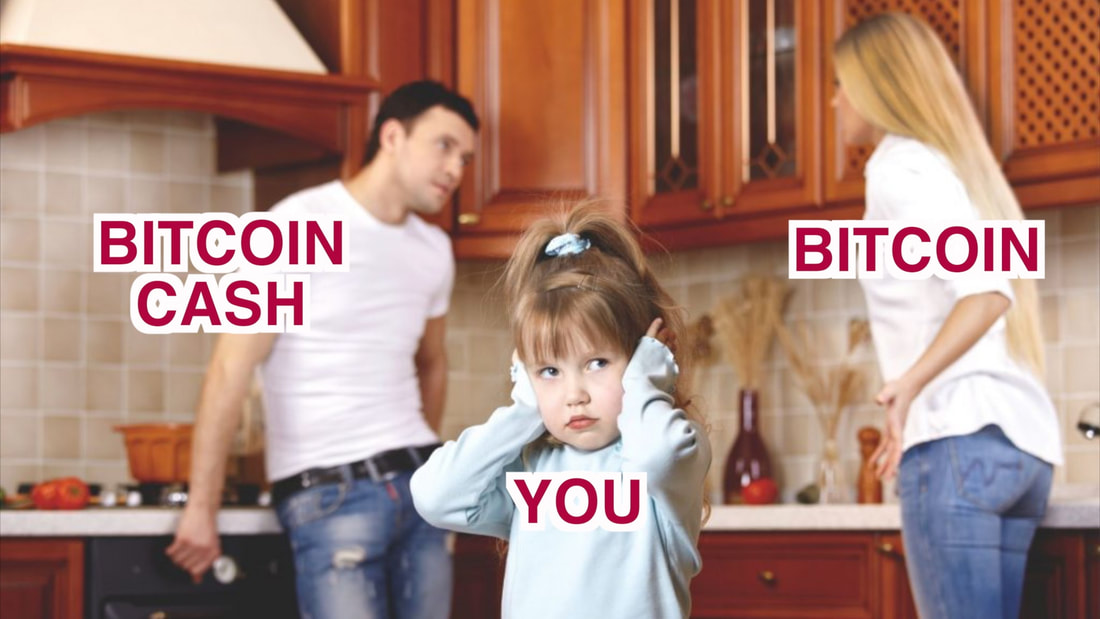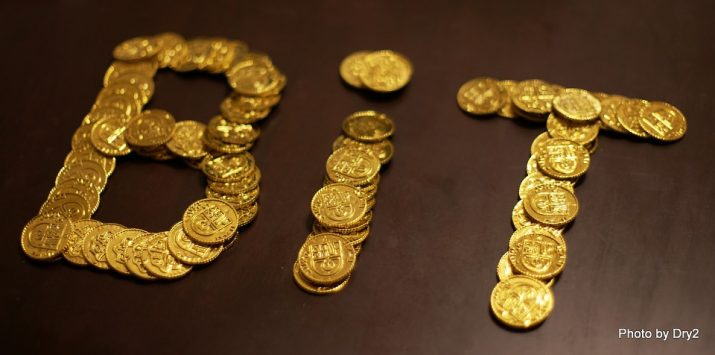|
Ethereum (ETH) has reached its 30-day high on National Day (9 Aug 2017), passing the $300 USD mark. But is NOW really the time to invest in Ether? Many investors worry that this might just be another Ether bubble forming in a bubble that has yet to pop since early 2017. It has grown +3100% since January 2017 from $10 USD per 1 ETH to around $300 USD per 1 ETH (as of early August, 2017).
This significant growth is related to recent success stories of Ethereum-based (ERC20) tokens including EOS, Golem Network Token, and Bancor. The token crowd-funding frenzy since January 2017 has in total accumulated more than $300 million USD – hence, the sudden growth in demands for ETH. Many are worrying that this sudden growth might simply collapse when these crowd-funded token projects/platforms decide to cash-out their accumulated Ether. Imagine over $300 million USD worth of ETH suddenly being traded back into fiat currencies. That would be the worst bear-whale nightmare in the history of all cryptocurrencies combined. However, it is highly unlikely that all these projects/platforms would cash-out their accumulated Ether all at once. Perhaps the demand for ETH will only grow as with the increased popularity of Ethereum as a token-creation platform. The developers of Ethereum are saying that the journey is only 20% complete and these token crowd-funds are merely 1% of what is to come in the next 10 years. Remember, if you had 100 USD worth of bitcoins back in 2010, you would be a millionaire today. So is NOW really the good time to invest in Ether? The answer is YES – if you are long-term investor and NO – if you are a daily trader. There has been a sharp increase in Ether’s value since January 2017. When there’s a sharp increase, there will be a sharp decrease to balance and we are not sure when that would happen. One thing is for sure though. Ethereum definitely has the potential to grow even more as a Blockchain technology platform. In fact, it is one of the only few cryptocurrency projects that is not completely based on ‘speculations’ and ‘promises’. Development is still on-going and the platform is actively being utilized by users. That’s one thing to look at! Join us in discussion on: www.facebook.com/CryptoCentral.Net www.steemit.com/@EugeneTay www.medium.com/@eugenetay www.EugeneTay.com If you would like to support me, you can send BTC to 39otZdtEjPDNVJ5wTk4oyHzfZjXxsGWXqj
1 Comment
With the hard-fork happening today (1st August 2017), Bitcoin investors and traders will soon be able to decide their preferred version of the Bitcoin blockchain – Bitcoin Cash (BCC) and Bitcoin (BTC).
Bitcoin Cash (BCC) will be a complete duplicate of Bitcoin’s blockchain including all of its transaction history. All Bitcoin users will be provided with the exact amount of BCC as they had in bitcoins at the time of the fork. This means if a user had 1 BTC available on his/her wallet during the time of the fork, they will be eligible to claim 1 BCC on the Bitcoin Cash blockchain. This basically means ‘free money’ to those uninterested in the debate and will ultimately result in the ‘dumping’ of Bitcoin Cash (BCC). How about Bitcoin? Will its value ever be impacted by the existence of Bitcoin Cash and the dumping of the currency that is bound to occur? Not too long ago, a similar event took place with Ethereum whereby some members of the community decided to stick with the old platform that was hacked (The DAO incident). Apparently, the decentralization and ultimately, the democracy of the currency is far more important than the vulnerability of the platform for members who support the old platform. This resulted in two very similar yet different cryptocurrencies – Ethereum (ETH) and Ethereum Classic (ETC). Today, Ethereum Classic is traded at around $14 USD whilst Ethereum has thrived to reach a value of over $200 USD. Was Ethereum’s value ever affected by the existence of Ethereum Classic? Well, the answer is NO. These are treated as two separate cryptocurrencies/platforms with no correlation to one another except for the fact that they were once a single platform managed by the same development team. Looking at the case of Ethereum, we can know one thing for sure. Bitcoin Cash will be dumped indefinitely by users who are merely there for the ‘free money’ - as we have seen through the ‘dump’ of Ethereum Classic as soon as the fork was completed. Another thing we know for sure is that there will be lots and I mean, LOTS of confusions between Bitcoin and Bitcoin Cash, particularly between new Cryptocurrency users for the next couple of months and potentially years. But will Bitcoin’s value ever be affected by Bitcoin Cash? Well, Ethereum’s case tells us that it won’t. If anything, Bitcoin’s value will be far more strengthened upon the successful completion of the fork. After all, it is an update! The saddest part about this fork, for me at least, is that this is the end of the Bitcoin story. The Bitcoin fork which retains the BTC ticker does not follow the architecture that Satoshi Nakamoto had set, and while the Bitcoin Cash does follow its founder's vision, it has unfortunately been relegated to being an altcoin, shunned away by the crypto community. It's bloody heartbreaking. Subscribe to CryptoCentral Facebook Page to get the most crucial crypto news update in under 3 minutes. Banks and old fuddy duddies are increasingly vocal about their doubts over the practicality of cryptocurrency.
"It's fluff!" "It's not real!" "It's a bubble!" "It has no real world application." "It's not safe." All these talks of FUD (Fear, Uncertainty and Doubt) going around are not without its merit. How do you value something that is basically churned out of just computers crunching numbers and wasting electricity? Bitcoin has a finite supply which makes it valuable, but on that same vein, we also now see that it's just as possible to duplicate money with a declaration of a fork. Some merchants are accepting Bitcoin transactions, but the numbers are probably still lesser than the money-for-gold market in the Warcraft computer game community. So it's not surprising to see why so many folks from the older generation are not really embracing cryptocurrencies. The recent spat of hacking and malware news aren't really making it easy for the industry to stand tall as a credible and safe alternative to fiat currencies either. Perhaps the biggest mistake that the older generation can make about innovation is in trying to make sense of it. The young people don't have that problem. They grew up in a generation that pays real money for digital goods in games. Young people throw money around in support of products and ideas that they like on Kickstarter and Indiegogo, and sometimes these products never even see the light of day. We get apps like BigO turning unknowns into overnight minor celebrities and getting paid just by doing god-the-phark-knows-what it is that they do on BigO. A friend of mine gets paid in likes and BigO money for streaming herself having lunch. Mind blowing. Things are already happening around us that don't make sense. Maybe it's time we stop trying to hammer our understanding onto cryptocurrency based on old world beliefs. Francisco Blanch, Head of Global Commodities and Derivatives Research at Bank of America, believes that the only way to legitimize cryptocurrency is to instil legal framework and subjugate it with regulatory guidelines. A Morgan Stanley analysts’ report, written by James Faucet, and published in June 2017 states that cryptocurrencies are more like “investment vehicles” which are actually more inconvenient to use as a form of payment as compared to credit or debit cards. There are also no clear reasons as to why cryptocurrencies are increasingly becoming popular and are on a massive surge. But regardless of what I or you or Blanch or Faucet think about the future of cryptocurrency, the fact remains that right now, Bitcoin is averaging daily trades of $1 billion USD according to statistics in recent months. Daily trades sometimes exceeded $2 billion USD. Bitcoin's volatility has decreased as it builds liquidity and scale, but it's still not at the banking industry's comfort level. A lady I met on a cryptocurrency chat group who lives in Angola, South Africa, says that cryptocurrency was the only way that she and her people are able to circumvent ridiculous banking laws in their country which, she claims, seek to keep them in perpetual poverty. Countries are also finding it harder to keep their money and citizens in check especially with money moving around the digital sphere so freely. For every good that cryptocurrency brings to the table, there are also the darker side of the internet that proliferates from this. Countries and regulatory bodies are right in feeling like they got their testicles caught in a bear trap. However, for the most parts, I feel that FUDers, and even the reputable economist and financial analyst, Peter Schiff, just don't understand human behaviour and collective social mindset. Full recognition of the ideology and technology behind cryptocurrencies is essential when it comes to analysing this growing trend. It almost feels like if something seems too way out of our realm of understanding, we just brush it off as rubbish. Unless of course, they actually do understand the power of cryptocurrency and realised it to be a threat to their existence and the prevailing print-on-demand monetary system. That would make the most sense as to why thy try so hard to use whatever vestige of their authority to shut down cryptocurrency. So should we be worried about that? Well, here's the good news: The only way they can shut down cryptocurrency is to shut down the internet. Now, that's not going to happen is it? Welcome to the next level of industrial revolution, suckers. In my last article I talked about why you should use Bitcoin if you haven't. This coming week (28 July - 7 August 2017) would be a good time to get in on the action if you haven't already, as experts forecast Bitcoin to crest towards the 5,000 USD mark by the end of the year. But I digress...
So today, I want to talk about the other parts of Bitcoin that isn't all about money. Here's a lesson on language and history. If you are an avid user of Bitcoin, you would probably understand the term ‘Cryptography’. The term is a combination of two Greek words ‘Kryptos’ and ‘Graphein’ in which it can literally be translated into ‘Secret’ and ‘Writings’. The process of ‘secret writing’ dates back to the prehistoric days when our ancestors were carving messages on cave walls. This process is in today’s world referred to as ‘Cryptography’ and it is becoming ever more relevant and important as with rapidly developing technologies, particularly within the financial industry. All payment forms or money used digitally – online – are classifiable as ‘digital currencies’. Bitcoin as well as all other altcoins are classified as a ‘Cryptographic Currency (Cryptocurrency)’ which falls under the family of digital currencies. Bitcoin, as well as your virtual money on online games, and your PayPal balance are all considered as digital currencies. Whilst they are all classified as digital currencies, there are factors which make a currency a ‘cryptocurrency’. Cryptocurrencies such as Bitcoin and Ethereum involve the practice of ‘Cryptography’, a programming technique used to further secure information within computer networks and systems. This is often achieved through securing the communication channel between the two parties – sender and receiver of information – through enabling encryption/passwords/secret keys. When we use cryptocurrencies such as Bitcoin, our transactions are fully encrypted through the process of ‘cryptography’ with none of our personal information attached to the transaction. All we ever need to send or receive a cryptocurrency is our cryptocurrency address and this is what makes most cryptocurrencies ‘anonymous’ or ‘pseudonymous’. Cryptocurrencies would not exist without the process of ‘cryptography’. In fact, the word ‘cryptocurrency’ is a short form of the two words ‘cryptographic currency’. Without this process, cryptocurrencies would not be as pseudonymous or anonymous as it is. If you are an avid user of Bitcoin and other cryptocurrencies, you would understand the importance of this feature. It is what makes them the most democratic currencies of our times – anonymous/pseudonymous and peer-to-peer transactions. In a world where our personal information is effortlessly leaked through the web, it is becoming ever more important to protect our identities online. The simple idea of ‘encrypting’ transactions has a great effect on our prevailing financial system, though this also means that unlawful activities and dark net transactions get to proliferate with this innovation as well. But we need to see innovation from a larger picture: It is a revolution in which we are just realizing the importance of the democratisation of our traditional monetary system with cryptocurrencies via the process of ‘Kryptos-Graphein’. This is the future. If you aren't too busy getting triggered reading social commentaries and have kept up to speed with the latest trends around the world, you might have noticed the word Bitcoin popping up more frequently than before. That's because Bitcoin is facing its biggest change since it was first discovered (it's more poetic than saying 'developed' or 'coded').
If you are still unsure if digital currency is a real thing or have never heard of it before, you are probably missing out quite a fair bit. Bitcoin, as well as many other cryptocurrencies are thriving to change the way how our traditional monetary system works. It has made banks look old-fashioned and physical money a useless paper waste. Some people even go as far as to forecast that fiat currency (that paper money in your wallet) will be worthless in the next generation or two. As a fan of the sci-fi game Shadowrun, the imaginative part of me can fathom a landscape where people carry around thumbdrives and pay in digital currencies. Below are the four ultimate reasons why you should start using Bitcoins right away: Anonymous If you are serious about privacy, pay attention. How many times have you been filling out forms be it online or offline only to provide your personal information like as if it means nothing? In a world where a simple search on Google can get you ‘stalking’ someone effortlessly, the issue of ‘privacy’ is becoming ever more important. No personal information is ever required for the use of Bitcoin. Transactions are handled out anonymously and you can send or receive money online at any time of the day from everywhere. Profitable Bitcoin is profitable in the sense that its value is expected to rise with time. This means you can earn profits merely by holding onto them. Just like all other fiat currencies, volatility exists. Daily traders take advantage of this volatility to earn profits by trading them into fiat currencies and vice versa. However, the major difference to note here is that the volatility of Bitcoin is much higher as with unregulated exchanges. The best thing? Its value has more than tripled ever since the beginning of 2017 and it is expected to steadily rise with time as predicted by major financial analysts and investors. Your due diligence is however, essential when making investment decisions! Anytime, Anywhere, Lowest Fees If you are someone who sends or receives large amounts of money internationally, you would want to pay attention to Bitcoin. Unlike banks, Bitcoin transactions can be handled at any time of the day from anywhere around the world. They are usually carried out instantly but require ‘confirmation’ time to verify your transaction – it usually takes no longer than 1 hour on average. When it comes to sending large amounts of money, especially to other parts of the world, bank fees can be hectic. With Bitcoin, transaction fees regardless of the amount being sent/received will never be more than a dollar. Stop worrying about bank holidays and hectic fees! Democracy Bitcoin is based on a decentralized network for everybody to use freely. This means no central authority or middlemen is involved with Bitcoin transactions. If you are not a fan of your Government watching every financial move you make, start using Bitcoins and support the financial revolution. In fact, the currency was created by Satoshi Nakamoto (the mysterious creator behind Bitcoin) over his frustrations and anger with the unpredictable monetary changes input by governments around the world. That’s right. He was fed up of hardworking people going bankrupt due to the mistakes of the banks and the government. Gain full control over your money and be your own bank with the use of bitcoins! I personally believe that cryptocurrency is the future and, like it or not, it's going to be the biggest talking point for the next three years; but don't just take my word for it - I caught up with Bob Ang, one of Singapore's pioneer in cryptocurrency trading, when Bitcoin was just worth barely a hundred dollars. It's not inconceivable for Bitcoin to hit 5,000 USD per BTC by the end of 2017 or mid 2018. If you have heard about cryptocurrency but haven't yet got behind the wheels, it's time you subscribe to my channel and get your regular dose of crypto news. Don't get left behind. The cryptocurrency hype and bubble isn't a new thing for me. I've seen it through the dot com bubble during the time I was a student and hopeful of my future. The bubble burst just as I graduated and I found myself holding an expensive certificate for an industry that people were getting out of. As a network engineer majoring in programming, I found my hourly rate was $2.20. I remember telling the interviewer that 7-11 paid more and he nodded emphatically. Your grandpa would probably remember the 1929 Wall Street Crash if he was still around. That was the beginning of a 12 year long depression. The signs were similar: excessive speculation, followed by a mini crash as investors started to sell stocks at a rapid pace, exposing the market's shaky foundation. Confidence dipped. People panic. Boom. Every toppled over like a house of cards. I'm willing to bet my left ball that cryptocurrency is headed the same way. The early movers, the risk takers, the visionaries, will be the one to make their new fortune. Wealth changes hands. When it comes to money and the financial market, I place greater emphasis on understanding social behaviour than I am of reading candlesticks. One book I highly recommend every newbie cryptocurrency trader to read is Ralph Nelson Elliott's book titled Nature's Law: The Secret of the Universe. The Elliott Wave Principle talks about 5 wave characteristics that reflects the psychology of the market. If you want to forecast how the future will look, just study what history has thought us. A fellow cryptocurrency trader, Roger Bryan, believes that we are in the second wave and it's marked by the following characteristics:
Third wave theory will display the following characteristics:
Fourth wave theory starts with mass adoption and normality to the markets. Regulations get slapped down to prevent fraud and scams. Everyone gets a chance to invest in coins like you do in equities today. No more overnight Lambos. The trends listed above aren't meant to discourage you. This should in fact motivate you to get in the game while there's still very strong opportunity to make some money. If you educate yourself instead of blindly following trends, you can save yourself a lot of heartache. For anyone over the age of 30 this might be the biggest investment trend opportunity you'll see in your lifetime. Can we still make money through mining? What is the future of mining going to be? Is it better to own a rig or just get a cloud mining contract? This is a must-watch 10 minute video for anyone thinking about getting into mining. If you're confused, like me, after reading the negative comments on the forums, the best way to get your questions answered is to go talk to someone who is solely mining to earn his coins and not through trading, or watch my videos as I do it for you. I'm going to get me a rig and see for myself if all this is true. I also managed to get me a deal with Mark for any Alpha Mind/CryptoCentral fans who want to get in on the mining action. Leave a comment or PM me for information about buying a rig. As always, please subscribe to my channel to get your regular crypto news and updates. So I've been spreading the good word on cryptocurrency and the too-good-to-be-true opportunities to make money. These are some of the frequently asked questions (FAQ) I get: 1. If it's all digital currency, how do you get money?
You use your fiat currency. That's the paper money that you currently have in your wallet. Through an e-wallet service, you can exchange money to Bitcoin or Etheruem, which is the de facto coin used for trading and buying alternative coins. Think of the bitcoin like your USD and the ETH as the Euro. It's recognised over the world. You can get your money back by using the same function to exchange digital currency to fiat currency. There's a small fee charged for this exchange, of course. 2. How do you make money in Cryptocurrency? There are a few ways to make money. Contrary to popular belief, trading in Cryptocurrency is NOT the only way you can earn a coin or two, though it it's the most popular because of news of people turning millionaires "overnight". You can trade in bitcoins and altcoins like you would for currencies in Forex. Except cryptocurrency is much more volatile and unregulated. You can also mine for coins using your computer. Though the yield from that from a home computer isn't going to be worth your time or utility bill. Serious miners have specialised systems and run multiple systems in a large room called a mining farm. I will cover mining for the poor man specifically in another article. You can also lend your bitcoin to sites that do margin trading and make a bit of money from that. Lastly, you can take part in activities provided by some of these tech companies that pay you in coins. Like Steem for example. It's like YouTube, but you get paid in coins for putting up content. Or like Gilgam.es which is an e-sport company that pays you coins for playing games. 3. Is it safe? What happens to my money when the bubble burst? The bubble burst is more devastating to traders. For the casual investor, you can park your money in a safe coin like bitcoin or Litecoin, maybe even Etheruem, Monero or Ripple. Just put your money there and check back a few years from now. The bubble that traders are talking about is the massive fluctuation of money in the Altcoin market where people are pumping in money in hopes to flip a profit when the value rises within a short span of time. Not all coins are good or worth that sort of investment. Some coins never make it past investment stage. The early investors who cash out make it, the late comers die a horrible death. It happened with the dot com bubble of ’98; it happened with the subprime mortgage crisis in 2008. 2018 is looming on the horizon. See a pattern here? 4. If it's that good why aren't more people doing this? Because people don't trust what they don't know and if something is too new or hard to understand it remains in the realm of the tech geeks until someone makes it mainstream. Remember the days of the internet or social media? How long were they out there before you picked it up? Same as Cryptocurrency. The money making opportunity is too good to be true. We are used to banks giving us lousy returns or insurance companies giving us between 4 - 6% per annum. The more savvy investor makes 9% through other portfolios, the very good ones maybe make 20%. In cryptocurrency, the everyday Joe and Jane like you and me can make 20 - 50% a week. Sounds too good to be true? I've done it on a fairly regular basis, and of course, I have lost just as much in some weeks. However, the market is still bullish and if invest wisely, you can maintain a pretty healthy portfolio. 5. I heard it's a Ponzi scheme. Wouldn't someone run away with my money after they made enough? Yes and no. There are hundreds of coins with newer ones coming out every other day. If coins confuse you, think of them as apps designed by tech companies with a certain use. Some apps are crap and some are good. If you blindly put money in as an investor to back the the crap ones, you stand a chance to fall prey to scams. That's why I always recommend that you do your research first and don't just follow trends. 6. I don't know how to trade. Can I still profit from this? Where do I begin? Yes you can. There are sites that help you manage your portfolio for a fee. I tried trading on my own but quite frankly I don't have the stomach for it. It's tough work and time consuming. You also need to be wise in hedging your bets in other revenue generators. Ideally you get yourself into private groups that pool their money and skills for a common cause. These are often based on referrals, so start hanging out in forums and chat groups to get acquainted with people. Or if you like how I'm managing my portfolio, you can join me and my collective for the ride. Connect with me and we can have a chat. If you found this useful, please subscribe to my channel, like and share my video with all your friends. Don’t get left behind. It’s like asking what is Internet back in the 90s. It’s something important and get mentioned a lot but few people know how it works. It is a secured way to transact over the internet by getting as many people as possible to witness the transaction. Blockchain is the invention of Satoshi Nakamoto. You can check out the previous video I did about this mysterious person. So, what is Blockchain? Imagine I’m buying a cup of coffee from you over the counter. I pass you money, you pass me coffee. Instead of a receipt, we get the people present around the place to whip out their phones and take a snap shot of the transaction. Typical of today’s mob, they would upload the pictures onto Instagram or Facebook.
And you know what they say; anything on the internet stays on the internet forever. This makes the transaction very secured because we have so many people bearing witness to our transaction. It makes it hard for either of us to want to cheat the other party because of all the evidence captured in all the hundreds of phones. Even if we have a friend in the crowd who decides they want to help us doctor the photo, we still wouldn’t be able to pull it off because it’s going to be the odd one out amongst the hundreds. This is effectively what makes Blockchain so secured that it has the ability to act as a currency to facilitate payment between two strangers in any part of the world. Now we come to the next part about Blockchain. How is the data stored? Remember there’s the part I mentioned about the mob posting the evidence on social media platforms like Facebook and Instagram? The posts appear by timeline right? And new posts appear on top of it or beside it, and over time as most posts come in, the older posts gets buried. That’s how Blockchain stores data. Every transaction between two people is being broadcasted to everyone in the network to bear witness. The record is stored in a ledger called a block. It is permanent and cannot be edited. Over time, the blocks just grow longer and longer and longer, forming a chain. Thus, earning its name - Blockchain. The Blockchain ledger is almost a thousand gigabytes at the time of this recording. So who are these people who are helping keep track of the ledgers? It's stored in every mining computer, every computer that has a wallet and by special sites that give Blockchain monitoring services. It’s spread around the world so if there was a chance of it being hacked, it needs to be globally orchestrated and at the same time. Not impossible, just highly improbable. The simple analogy I gave above is just a way to get quick understanding of Blockchain. Unlike the coffee buying example, your identity on Blockchain is anonymous. Every user has a public code and a private code that allows them to pay and receive. When you make a transaction, the information about your identity that is stored in ledger and viewed by everyone is the public key. It’s kinda like your credit card. The first 16 digits isn’t a secret; your CVC number (the 3 digits on the back of the card) is. That ladies and gents, is why Blockchain is used by most of the alternative coins that have emerged. It’s the main driver, the bedrock, that facilitates a trusted peer 2 peer transaction. The difference between one coin from the rest of the other thousands out there is the purpose they serve. These days you can find a coin for almost anything. In the next part of this series, we look at what Bitcoins alternatives and how you should pick which to invest in. |
Blockchain
|








 RSS Feed
RSS Feed
